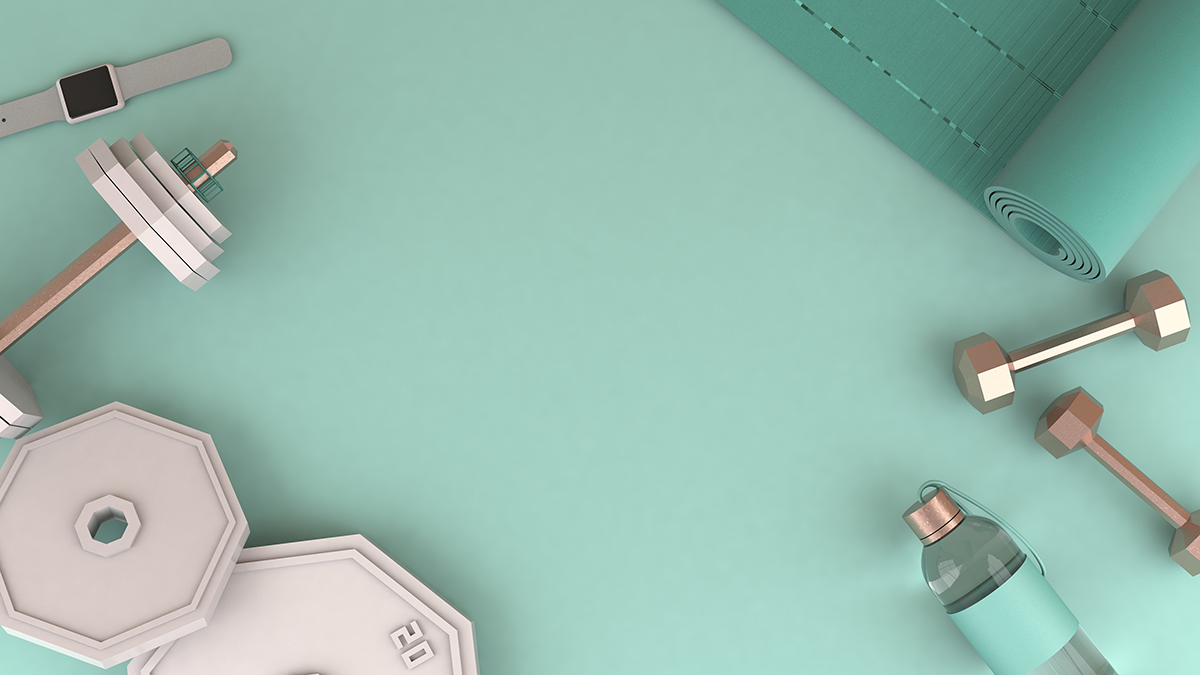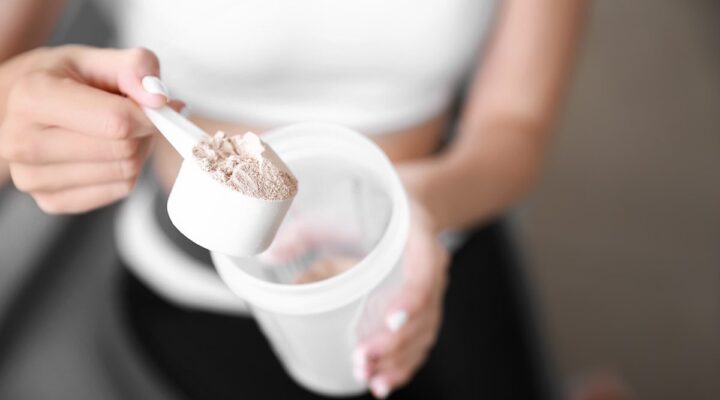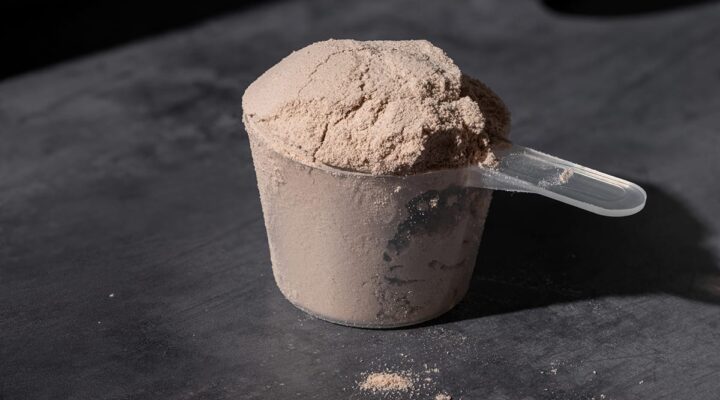Ask Dr Adam | Can You Build Muscle and Lose Fat at the Same Time?

Dear Dr Adam,
I’m looking to get a little leaner but am concerned that my fat-loss efforts will be to the detriment of my muscles. Is it possible to build muscle and lose fat at the same time, and if so, how?
Philip, Amersham
Hi Philip,
Ah, another million-dollar question, and it’s one that often gets a somewhat cynical response. But in truth, you can indeed do both at the same time.
The first thing to note is that everything in the body is linked. We have links between muscle and our liver, muscle and adipose tissue and so on. During any workout, you liberate fat in order to oxidise that fat for the given exercise. The effect of exercise (if you allow it through adequate feeding in the period before, during or after, but more on that in a bit) – will oxidise and liberate more fat, reducing your body fat.
The stimulus of exercise itself promotes protein synthesis, depending on the type. It’s particularly true of resistance exercise where you put a strain through your muscles. In this instance, you’ll be exercising with a heavy weight that’s, in essence, trying to tear your muscle, so you have to contract that muscle not just to lift the weight but to prevent it from pulling your skeleton apart. That physical strength coming through the muscle is itself a trigger of protein synthesis.
So in very simplistic terms, it’s entirely plausible to lose fat and gain muscle at the same time. But for all of that to happen, you have to be in an anabolic state, so you need carbohydrate and amino acids. The former because you need an insulin response, and the latter because they’re additional triggers of that protein synthesis.
As a bit of a side-note that often gets left out of the equation, it’s important to remember that if you’re increasing muscle, you’re also going to be increasing your fat-free mass. So proportionally to your body weight, you will have less fat mass. Perhaps, then, what we should really focus on here is what happens when you lose bodyweight?
“Where it all goes wrong in the quest to lose fat and gain muscle at the same time is in the misfueling, either of the endurance or the resistance component”
Well, you will lose some fat-free mass, because in the first stages you’ll lose water. But really when it comes to losing fat and building muscle simultaneously, there are two periods, because the big stimulus of oxidising fat is exercise, during but potentially also post-workout. A very dumbed down view, but one that’s essentially true, is that endurance or cardio exercise is for fat-burning, and resistance exercise is for gaining muscle.
What you need to overlay on top of that information though is how you’re going to feed around exercise. Where it all goes wrong in the quest to lose fat and gain muscle at the same time is in the misfueling, either of the endurance or the resistance component.
Let’s take HIIT training as an example, which is sort of a condensed form of endurance training which could be particularly appealing to someone looking to lose fat and gain muscle. The fat oxidisation part of HIIT happens in the post-exercise phase. If you overload on carbohydrate in this period, you’re going to blunt all that fat oxidisation you just triggered. Similarly, if you’re training endurance and you do it in a fully replete state, then if you replace carbohydrate during or after, you’ll blunt that fat oxidisation.
If you’re doing resistance exercise as a stimulus of protein synthesis, then feeding after that exercise is particularly important. But here comes another issue people face, because people overdose on feeding after resistance, and take in say 40g of protein following a few sets of biceps curls. In this instance, yes, you’ll get that protein synthesis, but there’s a surplus which will then contribute to fat storage.
All of which is to say that the most important thing to consider with your goal is careful management of fuel around whatever exercise stimulus you’re doing. Sure, it’s a long-winded answer, but do it cleverly and you’ll show anyone who tells you you’re attempting the impossible.
_
A qualified nutritionist for 20 years, Dr. Collins holds an MSc in Nutrition & Metabolism and a PhD focusing on energy expenditure and body composition. He is Director of MSc and BSc Nutrition at the University of Surrey. His research interests lie in exercise nutrition, body composition and energy metabolism and current research includes exercise intensity, intermittent fasting and timing of food around exercise.
To have your nutrition questions answered by Dr Adam Collins, please email hello@formnutrition.com


















